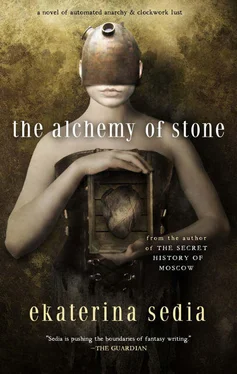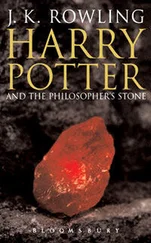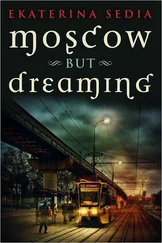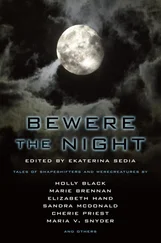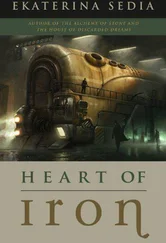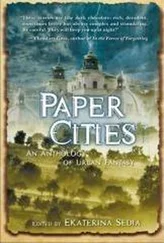The telegraphs all over the city chatter and thrash and spew forth endless ribbons of paper covered in messages no one reads—no one has to anymore. Soon they will run out of paper, and we imagine them straining and chittering, and punching the empty air with their beaks that will have run out of ink too. We wonder how long the water will keep flowing.
The markets are quiet now, and there is little left to buy besides last year’s corn and turnips. We see hollow-eyed women cowering—how fast they learned to move in quick dashes between the buildings!—and keeping close to the corners and houses. The merchants leave the centers of the markets free too, their stands leaning sparsely against the protective walls.
The children are gone, as if they had all disappeared overnight—we know it is not true, we know that some are locked inside and others were taken by their parents out of the city; yet others were sent away to relatives in other cities, where they could be children and carefree, while the adults wait out the awfulness that befell them. But it feels to us that they ran away, abandoning the city that disappointed them, and we try and imagine what it would be like, to run away forever, turning our ridged, winged backs on this city. We imagine the sounds of the sea and the smell of red, kind earth, the smells of different spices and the taste of unfamiliar rocks, made of limestone born by the sea and not the cruel hot compressions of the earth underneath. We contemplate joining the circus, like we imagine everyone does—idly, not seriously, but wistfully. There is such temptation, such forbidden joy in abandonment.
And then the rain starts falling, black rain tainted with soot; it weeps from the ledges and mourns in the gutters, it roars as it runs through the streets, like organ pipes, like a song. We look into each other’s faces and wipe away the black rain that weeps from our hardened eyes, leaving black tracks down our cheeks. And we are suddenly not sure whether it is the sky or us who is crying.
We look around us, and we mourn ourselves, we mourn the fact that even after the city and we are gone, the rock will remain. We mourn the ruined city, the unfinished construction, the demolished palace, the gutted houses. Even if it is right for it to be ruined, we can still feel sadness at its passing, can’t we? Can’t we? And the rainfalls.
We watch a lone figure stagger through the streets, holding a parcel to its chest. We recognize our metal girl, our friend, and we creep closer. She does not look good with her one eye and her blood homunculus, which she cradles to her chest, protecting it from rain. The homunculus wails as if water hurts it. The girl lurches onward, determined and half-blind, but heading steadily north. We imagine her walking like that, broken but unbreakable, forever, the homunculus at her chest crying in its gurgling incessant whine.
We eye it with suspicion—we are not of blood and bone, we are not of plant magic, and yet we feel a strange kinship to the pathetic creature, so soft it is almost liquid. And yet somehow it smells of stone, of the gray-limned stone that bore us—when we close our eyes, we see its layers and hair-thin ridges, the minuscule inclusions of black granite and crystal-bright quartz. Somehow, the creature is related to us, and we don’t know if it is good or bad, but we try to like it, as one would an obnoxious relative.
And the girl herself is not well—we can see it in her staggering, lurching step, in the dull green (where is the iridescent blue of a dragonfly’s wings?) glow of her single eye that reflects only the rain back at us.
She sees us only when we descend into the street and stand like a wall in front of her, a wall of sour gray bodies streaked with black.
“I know how to help you,” she whispers. “Shhh,” we answer. “It can wait.” (It cannot.) “Let us take care of you first. Where are you going?” “The Soul-Smoker,” she answers. We tell her about the soldiers.
Her fingers tighten on the soaked fabric of her skirt, and she cradles the bundle with the homunculus—a monstrous child— closer to her metal bosom. “We have to hurry then. Do you know a quick way there?”
We nod, and we pick her and her bundle up, we gather her into a protective embrace and cradle her close. She falls silent, so tired now.
And then we fly.
Mattie was tired for the first time in her life. She was not built to feel fatigue, to experience exhaustion—the whalebone and metal and the springs that held them together were tireless, for as long as she was wound up properly. But now, lying in the supporting net of the intertwined gargoyle arms, she felt her sole eye retracting into her head, and her mind screaming for permission to just rest, to shut down and not have to whir along anymore. Her heart beat with an irregular tick-tock, and after every click, Mattie feared that the next one would not come.
Loharri’s digging around in her head, wrenching out the hidden device and her eyes, damaged something—something important, she feared. Even after the homunculus threw the switch, her extremities felt wrong and awkward, as if wrapped in wool. Her thoughts turned around and around, sluggish and blind, running like trapped animals in the same compulsive circle.
She was broken, she thought; and the time had come when Loharri would not fix her, no matter how she pleaded and folded her hands, how she tilted her head to look up at him shyly. He was the one who broke her, with intentional carelessness. Iolanda, she thought. Iolanda would make him do what she wants—she would make him fix Mattie and give her the key, she would make him be nice to her and forgive her betrayal. It mattered that he would.
But before she could tell Iolanda all that, she needed to make sure that the Soul-Smoker was all right. Why it felt so important, she wasn’t sure. Perhaps because he housed the spirit of Beresta, Sebastian’s mother, or perhaps because she felt responsible because it was her—no matter how inadvertently—who gave away the treasonous spirits that he housed, told the mechanics that the telegraph they gave him was used to intercept their messages, that he kept secrets from them.
The enforcers would do away with him—from a distance, so as not to endanger their own spirits, using the decoy they brought with them—and they would continue on, to the mouth of the shaft by the slope of the Ram’s Head, down into the passage that burrowed under the city… Mattie did not want to continue this thought, for the truth was too bitter for even her diminished capacity “It’s all my fault,” she whispered, like a spell, without letting the meaning of the words reach her mind.
The gargoyles heard, and their arms swayed, calming, lulling. “Shhh,” they whispered as if to a child. “Shhh.”
Mattie did not dare to look down, at the streets below, and watched the low tendrils of the clouds streaking across the sky. It was so gray now, yet clear—the transparent bluish gray of a dove’s underside, the blue shine of well-polished metal. She had never seen a sky like this, unobscured by smoke and everyday city emanations.
“It is always like this,” the gargoyles whispered, barely audible above the whistling of the wind. “Up here, it is always clear and beautiful. This is why we rarely fly anymore.”
It made sense to Mattie—sometimes, one was better off not seeing, not knowing. The wind tore at her hair, the hair that used to belong to someone else, and her eye watched the clear skies above.
The gargoyles had landed downslope, and Mattie felt wobbly on her feet. She held the homunculus tighter as it grew agitated and babbled and gurgled, and pointed toward the Soul-Smoker’s shack; Mattie doubted they would be able to approach it undetected. Even the elusive gargoyles were exposed on this slope, out of their element and somehow smaller.
Читать дальше
